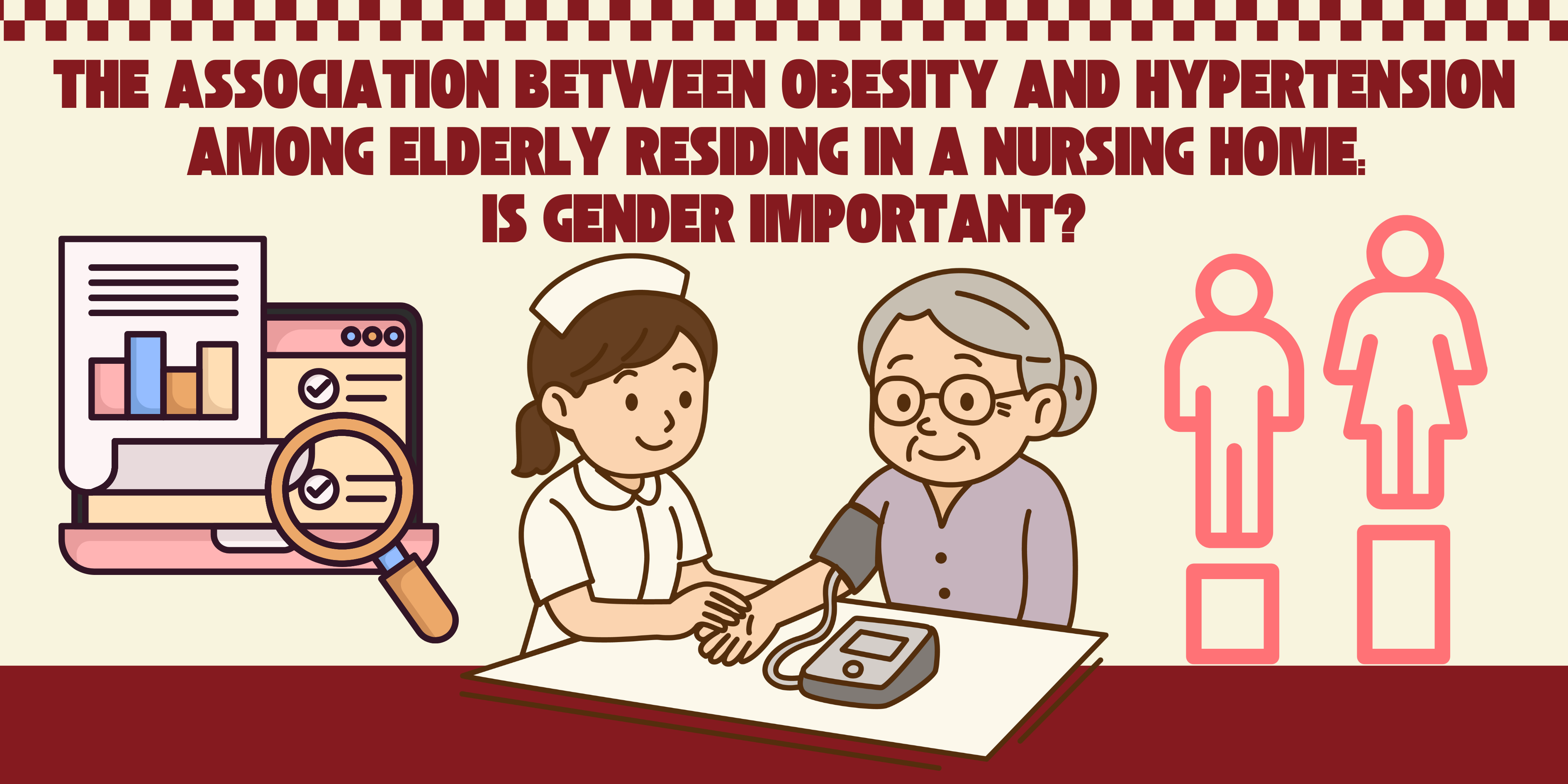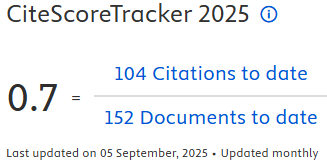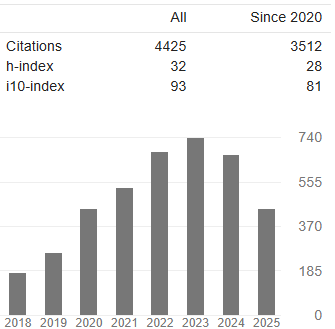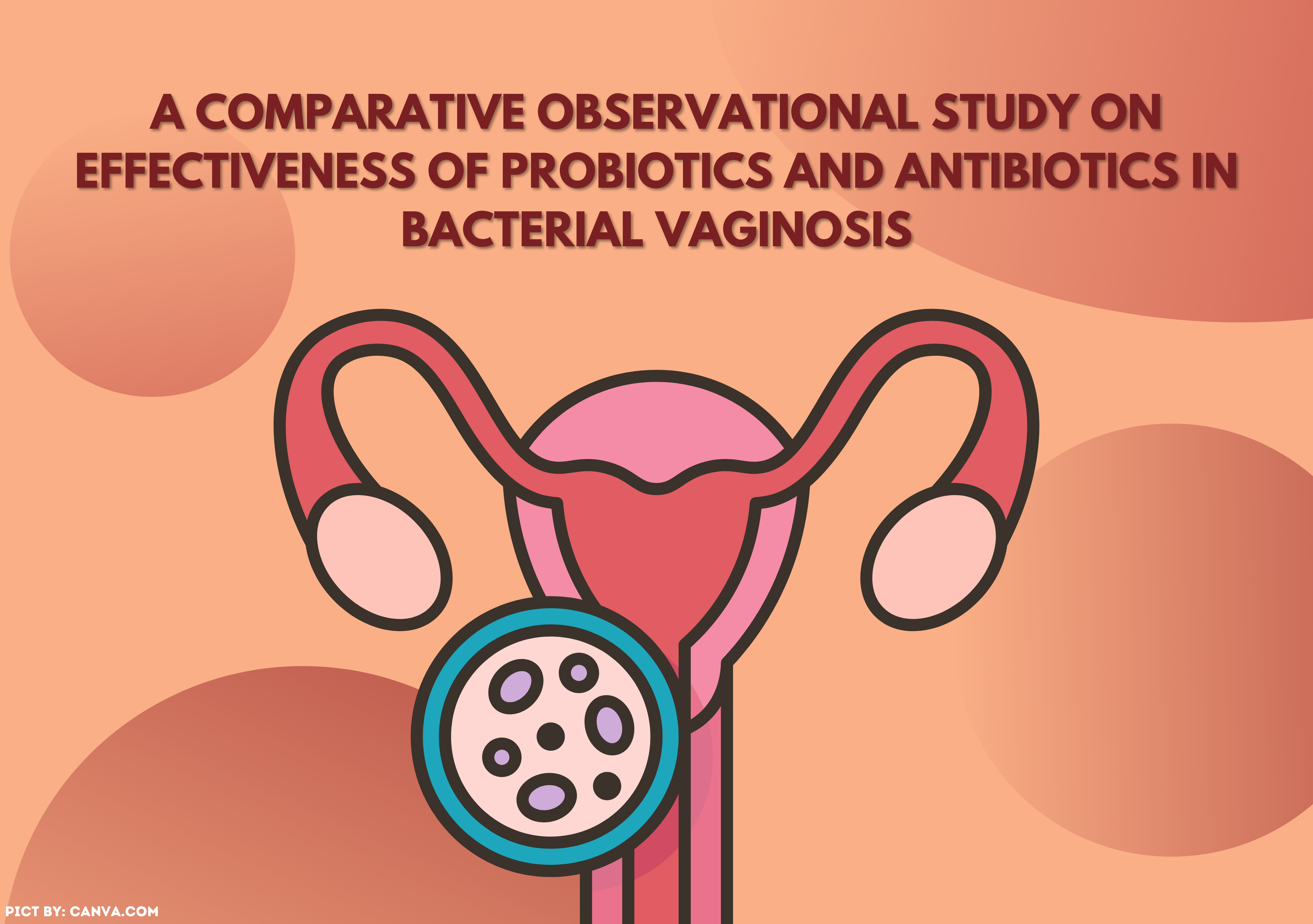THE ASSOCIATION BETWEEN OBESITY AND HYPERTENSION AMONG ELDERLY RESIDING IN A NURSING HOME: IS GENDER IMPORTANT?

Downloads
Introduction: Elderly exhibit an increased for health complications, including obesity and hypertension (HT).. Obesity has been demonstrated to increase the risk of HT and the mechanism is also often influenced by gender. Aims: The study aimed to analyze the association between obesity and hypertension among elderly in nursing home stratified by gender. Methods: A cross-sectional study was conducted on a sample of 54 elderly subjects in nursing home. A sphygmomanometer was used to assess blood pressure (BIA) and a Bioelectrical Impedance Analysis (BIA) to determine nutritional status includingbody mass index (BMI), body fat (BF), visceral fat (VF), and subcutaneous fat (SF). Analysis of data was performed using an independent t-test and Pearson correlation test. Results: Mean age of respondents was 71.28 ± 8.21, dominated by women (75.9%), and 27.8% had hypertension. Dietary intake indicate excess sodium intake, while potassium, calcium, magnesium, vitamin D, vegetables, and fruits intake remain low. All indicators of nutritional status assessment differ significantly by gender except BMI. However, the present study found that BMI is the only variable associated with systolic BP (p=0.023). Stratified by gender, it was found that BW, BMI, and VF in women were related to systolic BP (p=0.022; p=0.015; p=0.040; respectively), and no such relationship was observed in men. Conclusion: It is proven that obesity and hypertension were more prevalent among elderly women. It is imperative to check nutritional statusfor preventive action for other diseases, including hypertension.
Agarwalla, R., Saikia, A.M., Baruah, R., 2015. Assessment of the nutritional status of the elderly and its correlates. J. Fam. Community Med. 22, 39–43. https://doi.org/10.4103/2230-8229.149588
Alam, I., Larbi, A., Pawelec, G., Paracha, P.I., 2011. Relationship between anthropometric variables and nutrient intake in apparently healthy male elderly individuals: A study from Pakistan. Nutr. J. 10, 111. https://doi.org/10.1186/1475-2891-10-111
Astutik, E., Farapti, F., Tama, T.D., Puspikawati, S.I., 2021. Differences Risk Factors for Hypertension Among Elderly Woman in Rural and Urban Indonesia. Yale J. Biol. Med. 94, 407–415.
Batsis, J.A., Zagaria, A.B., 2018. Addressing Obesity in Aging Patients. Med. Clin. North Am. 102, 65–85. https://doi.org/10.1016/j.mcna.2017.08.007
Beasley, L.E., Koster, A., Newman, A.B., Javaid, M.K., Ferrucci, L., Kritchevsky, S.B., Kuller, L.H., Pahor, M., Schaap, L.A., Visser, M., Rubin, S.M., Goodpaster, B.H., Harris, T.B., study, T.H.A.B.C., 2009. Inflammation and Race and Gender Differences in Computerized Tomography-measured Adipose Depots. Obesity 17, 1062–1069. https://doi.org/10.1038/oby.2008.27
Benetos, A., Gautier, S., Labat, C., Salvi, P., Valbusa, F., Marino, F., Toulza, O., Agnoletti, D., Zamboni, M., Dubail, D., 2012. Mortality and cardiovascular events are best predicted by low central/peripheral pulse pressure amplification but not by high blood pressure levels in elderly nursing home subjects: the PARTAGE (Predictive Values of Blood Pressure and Arterial Stiffness i. J. Am. Coll. Cardiol. 60, 1503–1511. https://doi.org/10.1016/j.jacc.2012.04.055
Boeing, H., Bechthold, A., Bub, A., Ellinger, S., Haller, D., Kroke, A., Leschik-Bonne, E., Müller, M.J., Oberritter, H., Schulze, M., Stehle, P., Watzl, B., 2012. Critical review: vegetables and fruit in the prevention of chronic diseases. Eur. J. Nutr. 51, 637–663. https://doi.org/10.1007/s00394-012-0380-y
Boscatto, E.C., Duarte, M. de F. da S., Coqueiro, R. da S., Barbosa, A.R., 2013. Nutritional status in the oldest elderly and associated factors. Rev. Assoc. MÃcopyrightdica Bras. 59, 40–47. https://doi.org/10.1590/S0104-42302013000100010
Bulló, M., Garcia-Aloy, M., Martínez-González, M.A., Corella, D., Fernández-Ballart, J.D., Fiol, M., Gómez-Gracia, E., Estruch, R., Ortega-Calvo, M., Francisco, S., Flores-Mateo, G., Serra-Majem, L., Pintó, X., Covas, M.-I., Ros, E., Lamuela-Raventós, R., Salas-Salvadó, J., 2011. Association between a healthy lifestyle and general obesity and abdominal obesity in an elderly population at high cardiovascular risk. Prev. Med. 53, 155–161. https://doi.org/10.1016/j.ypmed.2011.06.008
Calder, P.C., Ahluwalia, N., Brouns, F., Buetler, T., Clement, K., Cunningham, K., Esposito, K., Jönsson, L.S., Kolb, H., Lansink, M., Marcos, A., Margioris, A., Matusheski, N., Nordmann, H., O’Brien, J., Pugliese, G., Rizkalla, S., Schalkwijk, C., Tuomilehto, J., Wärnberg, J., Watzl, B., Winklhofer-Roob, B.M., 2011. Dietary factors and low-grad inflammation in relation to overweight and obesity. Br. J. Nutr. 106, S1–S78. https://doi.org/10.1017/S00071145110054600
Chan, Y.Y et al. 2021. Self-Reported Modifiable Risk Factors of Cardiovascular Disease among Older Adults in Malaysia: A Cross-Sectional Study of Prevalence and Clustering. International Journal of Environmental Research and Public Health 18(15): 1–15. https://doi.org/10.3390/ijerph18157941
Cetin, D.C., Nasr, G., 2014. Obesity in the elderly: More complicated than you think. Cleve. Clin. J. Med. 81, 51–61. https://doi.org/10.3949/ccjm.81a.12165
Chen, S.C., Lo, T.C., Chang, J.H., Kuo, H.W., 2014. Variations in Aging, Gender, Menopause, and Obesity and Their Effects on Hypertension in Taiwan. Int. J. Hypertens. 2014, 515297. https://doi.org/10.1155/2014/515297
Chiavaroli, L., Viguiliouk, E., Nishi, S.K., et al, 2019. DASH Dietary Pattern and Cardiometabolic Outcomes: An Umbrella Review of Systematic Reviews and Meta-Analyses. Nutrients 11, 338. https://doi.org/10.3390/nu11020338
de Vasconcelos, F. de A.G., Cordeiro, B.A., Rech, C.R., Petroski, E.L., 2010. Sensitivity and specifi city of the body mass index for the diagnosis of overweight/ obesity in elderly. Cad. Saude Publica 26, 1519–1527. https://doi.org/10.1590/S0102-311X2010000800006
Doumas, M., Papademetriou, V., Faselis, C., Kokkinos, P., 2013. Gender differences in hypertension: myths and reality. Curr. Hypertens. Rep. 15, 321–330. https://doi.org/10.1007/s11906-013-0359-y
Dwimartutie, N., Setiati, S., Oemardi, M., 2010. The correlation between body fat distribution and insulin resistance in elderly. Acta Med Indones 42, 66–73.
Fabbri, L.M., Ferrari, R., 2006. Chronic disease in the elderly: back to the future of internal medicine. Breathe 3, 40 LP – 49. https://doi.org/10.1183/18106838.0301.40
Farapti, F., Fadilla, C., Yogiswara, N., Adriani, M., 2020. Effects of vitamin D supplementation on 25(OH)D concentrations and blood pressure in the elderly: a systematic review and meta-analysis. F1000 Res. 9, 1–21. https://doi.org/10.12688/f1000research.24623.2
Farapti, F., Nadhiroh, S.R., Sayogo, S., Mardiana, N., 2017. Urinary and dietary sodium to potassium ratio as a useful marker for estimating blood pressure among older women in Indonesian Urban coastal areas. Mediterr. J. Nutr. Metab. 10, 113–122. https://doi.org/10.3233/MNM-17138
Farapti, F., Wangi, M.P., Adiningsih, S., 2023. The Assessment of Daily Menus in Nursing Home Residents for Improving Intake and Nutritional Status in Elderly: Penilaian Menu Harian dari Penghuni Panti Werdha dalam Rangka Memperbaiki Asupan dan Status Gizi Lansia. Amerta Nutr. 7, 262–266. https://doi.org/10.20473/amnt.v7i2.2023.262-266
Fares, D., Rodrigues Barbosa, A., Ferreti Borgatto, A., Silva Coqueiro, R. da, Henrique Fernandes, M., 2012. Factors associated with nutritional status of the elderly in two regions of Brazil. Rev. Assoc. Médica Bras. Engl. Ed. 58, 434–441. https://doi.org/10.1016/S2255-4823(12)70225-4
Faulkner, J.L., Belin de Chantemèle, E.J., 2018. Sex differences in mechanisms of hypertension associated with obesity. Hypertension 71, 15–21. https://doi.org/10.1161/HYPERTENSIONAHA.117.09980
Félix-Redondo, F.J., Grau, M., Fernández-Bergés, D., 2013. Cholesterol and cardiovascular disease in the elderly. Facts and gaps. Aging Dis. 4, 154–169.
Fernandes-Silva, M.M., Shah, A.M., Claggett, B., Cheng, S., Tanaka, H., Silvestre, O.M., Nadruz, W., Borlaug, B.A., Solomon, S.D., 2018. Adiposity, body composition and ventricular–arterial stiffness in the elderly: the Atherosclerosis Risk in Communities Study. Eur. J. Heart Fail. 20, 1191–1201. https://doi.org/10.1002/ejhf.1188
Fukuoka, Y., Narita, T., Fujita, H., Morii, T., Sato, T., Sassa, M.H., Yamada, Y., 2019. Importance of physical evaluation using skeletal muscle mass index and body fat percentage to prevent sarcopenia in elderly Japanese diabetes patients. J. Diabetes Investig. 10, 322–330. https://doi.org/10.1111/jdi.12908
Furqonia, A.W., Farapti, F., Notobroto, H.B., 2023. Apakah Asupan Natrium Berlebih Merupakan Faktor Risiko Overweight?: Tinjauan Sistematis: Is Excess Sodium Intake a Risk Factor for Overweight?: A Systematic Review. Amerta Nutr. 7, 459–467. https://doi.org/10.20473/amnt.v7i3.2023.459-467
Gao, Y., Chen, G., Tian, H., Lin, L., Lu, J., Weng, J., Jia, W., Ji, L., Xiao, J., Zhou, Z., Ran, X., Ren, Y., Chen, T., Yang, W., Group, for the C.N.D. and M.D.S., 2013. Prevalence of Hypertension in China: A Cross-Sectional Study. PLOS ONE 8, e65938. https://doi.org/10.1371/journal.pone.0065938
Geleijnse, J.M., Kok, F.J., Grobbee, D.E., 2004. Impact of dietary and lifestyle factors on the prevalence of hypertension in Western populations. Eur. J. Public Health 14, 235–239. https://doi.org/10.1093/eurpub/14.3.235
Ghaffari, S., Pourafkari, L., Tajlil, A., Sahebihagh, M.H., Mohammadpoorasl, A., Tabrizi, J.S., Nader, N.D., Azizi Zeinalhajlou, A., 2016. The prevalence, awareness and control rate of hypertension among elderly in northwest of Iran. J. Cardiovasc. Thorac. Res. 8, 176–182. https://doi.org/10.15171/jcvtr.2016.35
Gomez-Cabello, A., Pedrero-Chamizo, R., Olivares, P.R., Luzardo, L., Juez-Bengoechea, A., Mata, E., Albers, U., Aznar, S., Villa, G., Espino, L., Gusi, N., Gonzalez-Gross, M., Casajus, J.A., Ara, I., 2011. Prevalence of overweight and obesity in non-institutionalized people aged 65 or over from Spain: the elderly EXERNET multi-centre study. Obes. Rev. 12, 583–592. https://doi.org/10.1111/j.1467-789X.2011.00878.x
Hall, J.E., Carmo, J.M. do, Alexandre, da S.A., Wang, Z., Hall, M.E., 2015. Obesity-Induced Hyertension: Interaction of Neurohumoral and Renal Mechanisms. Circ. Res. 116, 991–1006. https://doi.org/10.1161/CIRCRESAHA.116.305697
Hung, W.W., Ross, J.S., Boockvar, K.S., Siu, A.L., 2011. Recent trends in chronic disease, impairment and disability among older adults in the United States. BMC Geriatr. 11, 47. https://doi.org/10.1186/1471-2318-11-47
Iaccarino Idelson, P., D’Elia, L., Cairella, G., Sabino, P., Scalfi, L., Fabbri, A., Galletti, F., Garbagnati, F., Lionetti, L., Paolella, G., Simonetti, P., Strazzullo, P., Group, O.B.O.T.S.-G.W., 2020. Salt and Health: Survey on Knowledge and Salt Intake Related Behaviour in Italy. Nutriens 12. https://doi.org/10.3390/nu12020279
Ismail, R. et al. (2023). Prevalence and Factors Associated with Prehypertension and Hypertension Among Adults: Baseline Findings of PURE Malaysia Cohort Study’, American Journal of Medicine Open, 10(March), p. 100049. https://doi.org/10.1016/j.ajmo.2023.100049
Kang, S.M., Yoon, J.W., Ahn, H.Y., Kim, S.Y., Lee, K.H., Shin, H., Choi, S.H., Park, K.S., Jang, H.C., Lim, S., 2011. Android Fat Depot Is More Closely Associated with Metabolic Syndrome than Abdominal Visceral Fat in Elderly People. PLOS ONE 6, e27694. https://doi.org/10.1371/journal.pone.0027694
Karaca, Ü., Schram, M.T., Houben, A.J.H.M., Muris, D.M.J., Stehouwer, C.D.A., 2014. Microvascular dysfunction as a link between obesity, insulin resistance and hypertension. Diabetes Res. Clin. Pract. 103, 382–387. https://doi.org/10.1016/j.diabres.2013.12.012
Karastergiou, K., Smith, S.R., Greenberg, A.S., Fried, S.K., 2012. Sex differences in human adipose tissues – the biology of pear shape. Biol. Sex Differ. 3, 13. https://doi.org/10.1186/2042-6410-3-13
Kaur, J., Singh, M., Batra, A.P.S., Garg, R., Kaur, M., Punia, N., 2013. Blood Pressure and Obesity Variation Among Population of Amritsar District. Int. J. Basic Appl. Med. Sci. 3, 113–121.
Kim, H. Il, Kim, J.T., Yu, S.H., Kwak, S.H., Jang, H.C., Park, K.S., Kim, S.Y., Lee, H.K., Cho, Y.M., 2011. Gender differences in diagnostic values of visceral fat area and waist circumference for predicting metabolic syndrome in Koreans. J. Korean Med. Sci. 26, 906. https://doi.org/10.3346/jkms.2011.26.7.906
Kirchengast, S., 2010. Gender Differences in Body Composition from Childhood to Old Age: An Evolutionary Point of View. J. Life Sci. 2, 1–10. https://doi.org/10.1080/09751270.2010.11885146
Kjeldsen, S.E., 2018. Hypertension and cardiovascular risk: General aspects. Pharmacol. Res. 129, 95–99. https://doi.org/10.1016/j.phrs.2017.11.003
Koster, A., Stenholm, S., Alley, D.E., Kim, L.J., Simonsick, E.M., Kanaya, A.M., Visser, M., Nicklas, D.K.H.B.J., Tylavsky, F.A., Satterfield, S., Goodpaster, B.H., Ferrucci, L., Harris, T.B., 2010. Body Fat Distribution and Inflammation Among Obese Older Adults With and Without Metabolic Syndrome. Obesity 18, 2354–2361. https://doi.org/10.1038/oby.2010.86
Kotchen, T.A., 2010. Obesity-related hypertension: Epidemiology, pathophysiology, and clinical management. Am. J. Hypertens. 23, 1170–1178. https://doi.org/10.1038/ajh.2010.172
Kotsis, V., Nilsson, P., Grassi, G., Mancia, G., Redon, J., Luft, F., Schmieder, R., Engeli, S., Stabouli, S., Antza, C., 2015. New developments in the pathogenesis of obesity-induced hypertension. J. Hypertens. 33, 1499–1508. https://doi.org/10.1097/HJH.0000000000000645
Leggio, M., Lombardi, M., Caldarone, E., Severi, P., D’Emidio, S., Armeni, M., Bravi, V., Bendini, M.G., Mazza, A., 2017. The relationship between obesity and hypertension: an updated comprehensive overview on vicious twins. Hypertens. Res. 40, 947–963. https://doi.org/10.1038/hr.2017.75
Liu, M.-Y., Li, N., Li, W.A., Khan, H., 2017. Association between psychosocial stress and hypertension: a systematic review and meta-analysis. Neurol. Res. 39, 573–580. https://doi.org/10.1080/01616412.2017.1317904
Lochner, S., Kirch, W., Schindler, C., 2012. Managing hypertension among nursing-home residents and community-dwelling elderly in Germany: a comparative pharmacoepidemiological study. Eur. J. Clin. Pharmacol. 68, 867–875. https://doi.org/10.1007/s00228-011-1195-0
Maskarinec, G., Namatame, L.A., Kang, M., Buchthal, S.D., Ernst, T., Monroe, K.R., Shepherd, J.A., Wilkens, L.R., Boushey, C.J., Marchand, L. Le, Lim, U., 2020. Differences in the association of diet quality with body fat distribution between men and women. Eur. J. Clin. Nutr. 74, 1434–141. https://doi.org/10.1038/s41430-020-0563-1
Mendes, T. de A.B., Goldbaum, M., Segri, N.J., Barros, M.B. de A., CÃcopyrightsar, C.L.G., Carandina, L., 2013. Factors associated with the prevalence of hypertension and control practices among elderly residents of SÃpoundso Paulo city, Brazil. Cad. SaÃtextordmasculinede PÃtextordmasculineblica 29, 2275–2286. https://doi.org/10.1590/0102-311x00151312
Ministry of Health of Indonesia, 2018. National report on basic health research 2018. Jakarta: Ministry of Health of Indonesia.
Momtaz, Y.A., Hamid, T.A., Yusoff, S., Ibrahim, R., Chai, S.T., Yahaya, N., Abdullah, S.S., 2012. Loneliness as a risk factor for hypertension in later life. J. Aging Health 24, 696–710. https://doi.org/10.1177/0898264311431305
Moore, K.L., Boscardin, W.J., Steinman, M.A., Schwartz, J.B., 2012. Age and Sex Variation in Prevalence of Chronic Medical Conditions in Older Residents of U.S. Nursing Homes. J. Am. Geriatr. Soc. 60, 756–764. https://doi.org/10.1111/j.1532-5415.2012.03909.x
Oladoyinbo, C.A., Ekerette, N.N., Ogunubi, T.I., 2015. Obesity and hypertension amongst traders in Ijebu Ode, Nigeria. Afr. J. Biomed. Res. 18, 23–27.
Park, E., Kim, J., 2016. The Impact of a Nurse‐Led Home Visitation Program on Hypertension Self‐Management among Older Community‐Dwelling Koreans. Public Health Nurs. 33, 42–52. https://doi.org/10.1111/phn.12220
Petrosino, J.M., DiSilvestro, D., Ziouzenkova, O., 2014. Aldehyde Dehydrogenase 1A1: Friend or Foe to Female Metabolism? Nutrients . https://doi.org/10.3390/nu6030950
Pinto de Souza Fernandes, D., Duarte, M.S.L., Pessoa, M.C., Franceschini, S. do C.C., Ribeiro, A.Q., 2017. Evaluation of diet quality of the elderly and associated factors. Arch. Gerontol. Geriatr. 72, 174–180. https://doi.org/10.1016/j.archger.2017.05.006
Pramesona, B.A., Taneepanichskul, S., 2018. Prevalence and risk factors of depression among Indonesian elderly: A nursing home-based cross-sectional study. Neurol. Psychiatry Brain Res. 30, 22–27. https://doi.org/10.1016/j.npbr.2018.04.004
Qin, L., Yang, Z., Gu, H., Lu, S., Shi, Q., Xing, Y., Li, X., Li, R., Ning, G., Su, Q., 2014. Association between serum uric acid levels and cardiovascular disease in middle-aged and elderly Chinese individuals. BMC Cardiovasc. Disord. 14, 26. https://doi.org/10.1186/1471-2261-14-26
Rosano, G.M.C., Vitale, C., Marazzi, G., Volterrani, M., 2007. Menopause and cardiovascular disease: the evidence. Climacteric 10, 19–24. https://doi.org/10.1080/13697130601114917
Russo, C., Jin, Z., Homma, S., Rundek, T., Elkind, Mitchell, S.V., Sacco, R.L., Di Tullio, M.R., 2011. Effect of Obesity and Overweight on Left Ventricular Diastolic Function. J. Am. Coll. Cardiol. 57, 1368–1374. https://doi.org/10.1016/j.jacc.2010.10.042
Saragat, B., Buffa, R., Mereu, E., Succa, V., Cabras, S., Mereu, R.M., Viale, D., Putzu, P.F., Marini, E., 2012. Nutritional and psycho-functional status in elderly patients with Alzheimer’s disease. J. Nutr. Health Aging 16, 231–236. https://doi.org/10.1007/s12603-011-0347-3
Sargento, L., Longo, S., Lousada, N., dos Reis, R.P., 2014. The Importance of Assessing Nutritional Status in Elderly Patients with Heart Failure. Curr. Heart Fail. Rep. 11, 220–226. https://doi.org/10.1007/s11897-014-0189-5
Serrano-Urrea, R., Garcia-Meseguer, M.J., 2013. Malnutrition in an Elderly Population without Cognitive Impairment Living in Nursing Homes in Spain: Study of Prevalence Using the Mini Nutritional Assessment Test. Gerontology 59, 490–498. https://doi.org/10.1159/000351763
Shariff Ghazali, S. et al. (2021) Prevalence and factors associated with multimorbidity among older adults in Malaysia: A population-based cross-sectional study, BMJ Open, 11(10), pp. 1–10. Available at: https://doi.org/10.1136/bmjopen-2021-052126
Sierra, C., 2017. [Hypertension in older adults]. Hipertens. Riesgo Vasc. 34 Suppl 2, 26–29. https://doi.org/10.1016/S1889-1837(18)30072-2
Slavin, J.L., Lloyd, B., 2012. Health benefits of fruits and vegetables. Adv. Nutr. Bethesda Md 3, 506–516. https://doi.org/10.3945/an.112.002154
Stępień, M., Wlazeł, R.N., Paradowski, M., Banach, M., Rysz, M., Misztal, M., Rysz, J., 2012. Serum concentrations of adiponectin, leptin, resistin, ghrelin and insulin and their association with obesity indices in obese normo- and hypertensive patients - pilot study. Arch. Med. Sci. AMS 8, 431–436. https://doi.org/10.5114/aoms.2012.29518
Tao, Z., Zheng, L.D., Smith, C., Luo, J., Robinson, A., Almeida, F.A., Wang, Z., Olumi, A.F., Liu, D., Cheng, Z., 2018. Estradiol signaling mediates gender difference in visceral adiposity via autophagy. Cell Death Dis. 9, 309. https://doi.org/10.1038/s41419-018-0372-9
Taylor, L.E., Sullivan, J.C., 2016. Sex differences in obesity-induced hypertension and vascular dysfunction: a protective role for estrogen in adipose tissue inflammation? Am. J. Physiol.-Regul. Integr. Comp. Physiol. 311, R714–R720. https://doi.org/10.1152/ajpregu.00202.2016
Verbrugghe, M., Beeckman, D., Van Hecke, A., Vanderwee, K., Van Herck, K., Clays, E., Bocquaert, I., Derycke, H., Geurden, B., Verhaeghe, S., 2013. Malnutrition and associated factors in nursing home residents: A cross-sectional, mul i-centre study. Clin. Nutr. 32, 438–443. https://doi.org/10.1016/j.clnu.2012.09.008
Wysocki, M., Luo, X., Schmeidler, J., Dahlman, K., Lesser, G.T., Grossman, H., Haroutunian, V., Beeri, M.S., 2012. Hypertension is Associated With Cognitive Decline in Elderly People at High Risk for Dementia. Am. J. Geriatr. Psychiatry 20, 179–187. https://doi.org/10.1097/JGP.0b013e31820ee833
Copyright (c) 2025 The Indonesian Journal of Public Health

This work is licensed under a Creative Commons Attribution-NonCommercial-ShareAlike 4.0 International License.
- The authors agree to transfer the transfer copyright of the article to The Indonesian Journal of Public Health effective if and when the paper is accepted for publication.
- Authors and other parties are bound to the Creative Commons Attribution-NonCommercial-ShareAlike 4.0 International License for the published articles, legal formal aspect of journal publication accessibility refers to Creative Commons Attribution-NonCommercial-ShareAlike 4.0 International License (CC BY-NC-SA), implies that:
- Attribution ” You must give appropriate credit, provide a link to the license, and indicate if changes were made. You may do so in any reasonable manner, but not in any way that suggests the licensor endorses you or your use.
- NonCommercial ” You may not use the material for commercial purposes.
- ShareAlike ” If you remix, transform, or build upon the material, you must distribute your contributions under the same license as the original.































